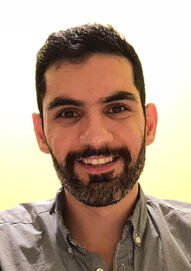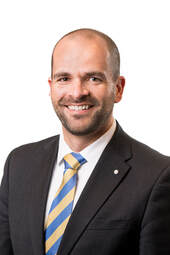The next 10 years will bring bigger, bolder and more entrepreneurial policy ideas than ever before. We look forward to continuing to elevate published work and early career voices on the international stage, while building upon a solid foundation of innovative writing and publishing laid by those who came before us. When JSPG was first established, the ecosystem supporting the involvement of early career STEM professionals in policy ideation and implementation was far more limited. I’m deeply humbled by the work we have all accomplished through JSPG worldwide over ten years--the diversity of voices and the ideas we’ve elevated. Now more than ever, we need substantive vehicles like JSPG to continue to empower the new generation to shape the frontiers of science, technology, and innovation policy and governance.
In June 2011, the Journal of Science Policy & Governance published its first volume. To celebrate the 10 year anniversary of the first issue, we took a look back in time and reflected on how far we’ve come, in this two-part blog post.
Over these 10 years, we have published 18 volumes and several special issues. We have trained and mentored countless numbers of students, postdocs, early career researchers and policy fellows from all over the world, and grown our impact through the sheer dedication of our staff, editors, governing board and advisory board members.
The welcome statement for this first issue stated the purpose of the journal as: “A publication dedicated toward identifying emerging challenges and exploring novel solutions. All of the articles are authored by students and young scholars, who provide a unique and often undervalued voice in policy debates.” I would argue we’ve done all that and more. We’ve stayed true to our mission, but grew our impact internationally beyond what we could have dreamed at that time. For 10 years, the journal has given birth to some of the most innovative policy ideas, and we’ve been inspired by the next generation’s views on the future of the field.
First issue published authors: where are they now?
This first issue covered many different topics in science, technology, governance, and policy in several formats, much like we do today. But this date will always mark the beginning of a new era in policy making when a journal focused solely on the next generation of policy leaders was born.
For this post, we caught up with some of the authors from the very first published issue, and learned about where they are now.
Firas Midani published a policy analysis on Advancement of the Multidisciplinary Research Paradigm via Facilities and Administration Costs and Cost Recovery Incentives. Currently he is a Postdoctoral Fellow, Baylor College of Medicine, Houston, Texas.
Firas:“When I published in the inaugural issue of JSPG, I was debating whether to fully pursue scientific research or science policy. I recall chatting with Max Bronstein, founder of JSPG, on careers in science policy. He made an incredibly valid point that academic scientists can still engage in science policy at different stages of their career and indeed make an impact doing so.
I eventually earned my PhD in Computational Biology at Duke University and I am currently a postdoctoral fellow at the Baylor College of Medicine in Houston, Texas. My research investigates how what we eat can influence the gut microbiome, the collection of microbes in our intestinal tracts, and accordingly influence our health. In particular, I am interested in how diet can protect from infectious microbes that cause incredible burden both in the Western world and developing nations. After a decade in academic science, I now have a different perspective on science policy including additional thoughts for my JSPG publication on the utility of indirect costs for incentivizing multi-disciplinary science. Over the next decade, I hope to incorporate this newer and enhanced perspective as I engage with policy leaders to shape the scientific enterprise and influence global policies.”
Matt Wenham was completing a postdoc at the NIH and volunteering as a Science Policy Fellow with Scientists and Engineers for America when he and one of his policy interns, Trisha Lowe, published an analysis of policy approaches to groundwater in South Florida.
Matt: “I used the opportunity provided by the SEA fellowship and publication in JSPG to springboard my career from the lab into science policy.”
Subsequently he moved to a Washington DC-based think tank, the Institute on Science for Global Policy, as an Associate Director. Returning to his native Australia in 2013, Matt became director of policy at Australia’s national academy for applied science, technology and engineering. He is currently an S&T policy manager for the Australian Department of Defence.
Aaron Ray published an article on Adaptive Policy Approaches to Ocean Acidification in this issue. He later served as Assistant Editor-in-Chief for JSPG.
Aaron: “Publishing in and later editing articles for JSPG was a great opportunity for me to share my research and contribute to the broader community of science policy scholars. It was a great introduction to the academic publishing process.”
Following his contributions to JSPG, Aaron served in the White House Office of Management and Budget with responsibility for Department of the Interior science and natural resources programs. He is currently a Deputy Director for Policy at the Colorado Governor’s Office of State Planning and Budgeting.
Connect with Aaron on LinkedIn.
We are grateful to be able to look back to the first issue and reflect on where we are now and what we’ve published over these 10 years and ways in which we’ve elevated the next generation in policy. This has been made possible through our talented editorial team. In the next post, we will hear perspectives from the JSPG’s editorial board and leadership.
Post written and compiled by Adriana Bankston.
Comments are closed.
|
- Home
- About
-
Volumes
- Volume 24 Issue 01
- Sigma Xi and Rita Allen Foundation - Civic Science for Transformative Policy Solutions to Societal Challenges
- Volume 23 Issue 01
- APS Policy and Governance on Science, Technology and Global Security
- IAI Development Policy and Global Change Science to Achieve the Vision of Sustainable Americas
- Volume 22 Issue 01
- GHFUTURES2030 Strengthening Youth-centered Policy and Governance of Digital Transformations in Health.
- UNESCO AND MGCY OPEN SCIENCE POLICIES AS AN ACCELERATOR FOR ACHIEVING THE SUSTAINABLE DEVELOPMENT GOALS
- Volume 21 Issue 01 >
- JSPG and UCL STEAPP Special Topics: Innovations in Science Diplomacy >
- Sigma XI-JSPG Special Issue: Re-envisioning STEM Education and Workforce Development for the 21st Century
- Volume 20 Issue 01
- JSPG Volume 19 Issue 01 (10 Years of Publishing)
- Special Issue: 2021 NSPN-JSPG Policy Memo Competition
- Special Issue: Shaping the Future of Science Policy
- JSPG-UK SIN Special Issue: Climate Change Solutions
- Volume 18 Issue 01
- Special Issue: 2020 NSPN-JSPG Policy Memo Competition
- Volume 17 Issue 01 (Supported by AAAS STPF)
- JSPG-UN MGCY Special Issue: Impacts of Emerging Technologies
- Volume 16 Issue 01
- Volume 15 (Supported by CSPC)
- Special Issue: 2019 NSPN-JSPG Policy Memo Competition
- Volume 14
- Volume 13
- Volume 12
- Volume 11
- Volume 10
- Volume 9
- Volume 8
- Volume 7
- Volume 6
- JSPG-UCS Special Issue: Healthy Food Policy
- Volume 5
- Volume 4
- Special Issue: Hot Topics 2013
- Volume 3
- Volume 2
- Volume 1
- Submit to JSPG
- Announcements
- Events
- Training
- Media Mentions
- Policy in action
- Podcast




